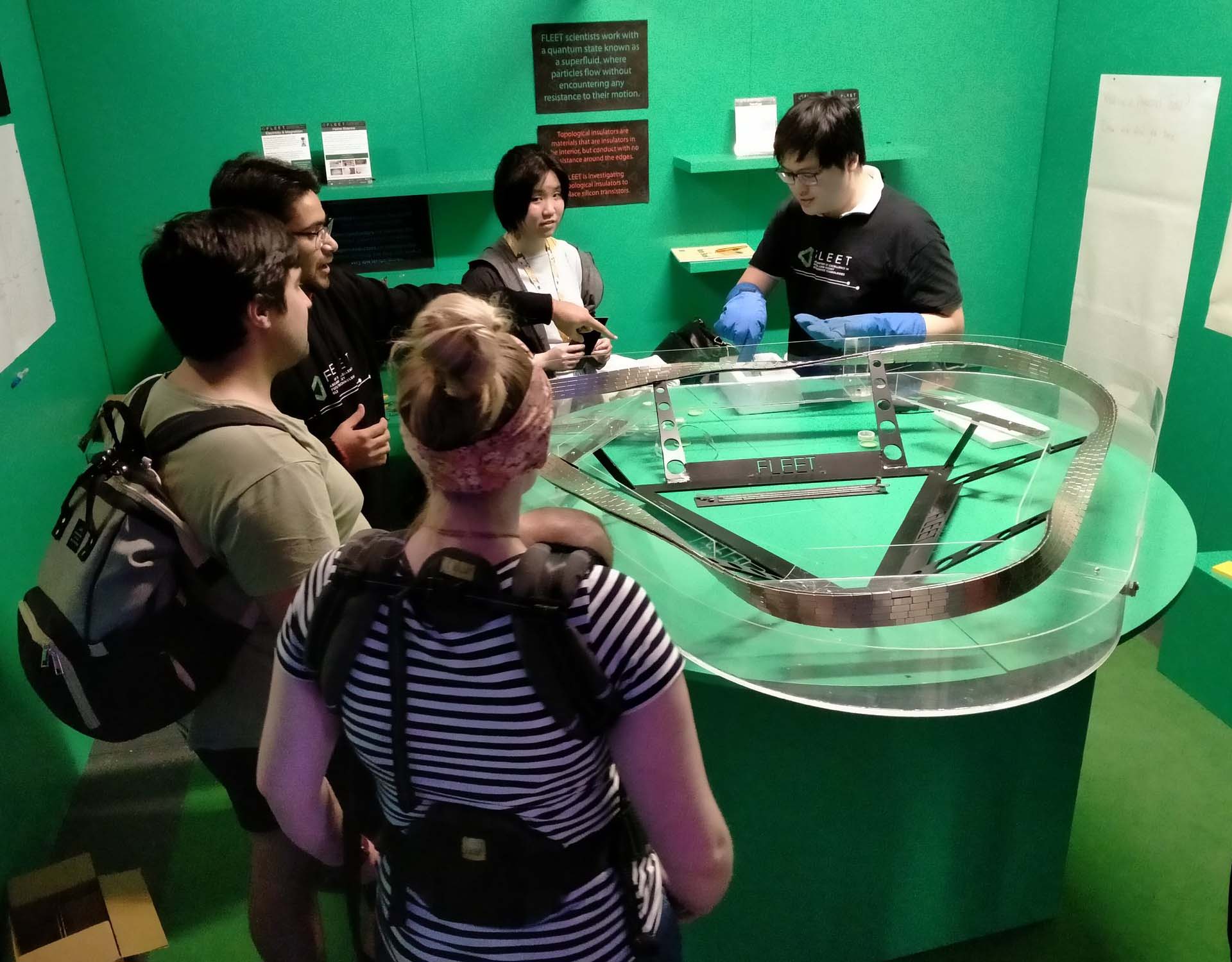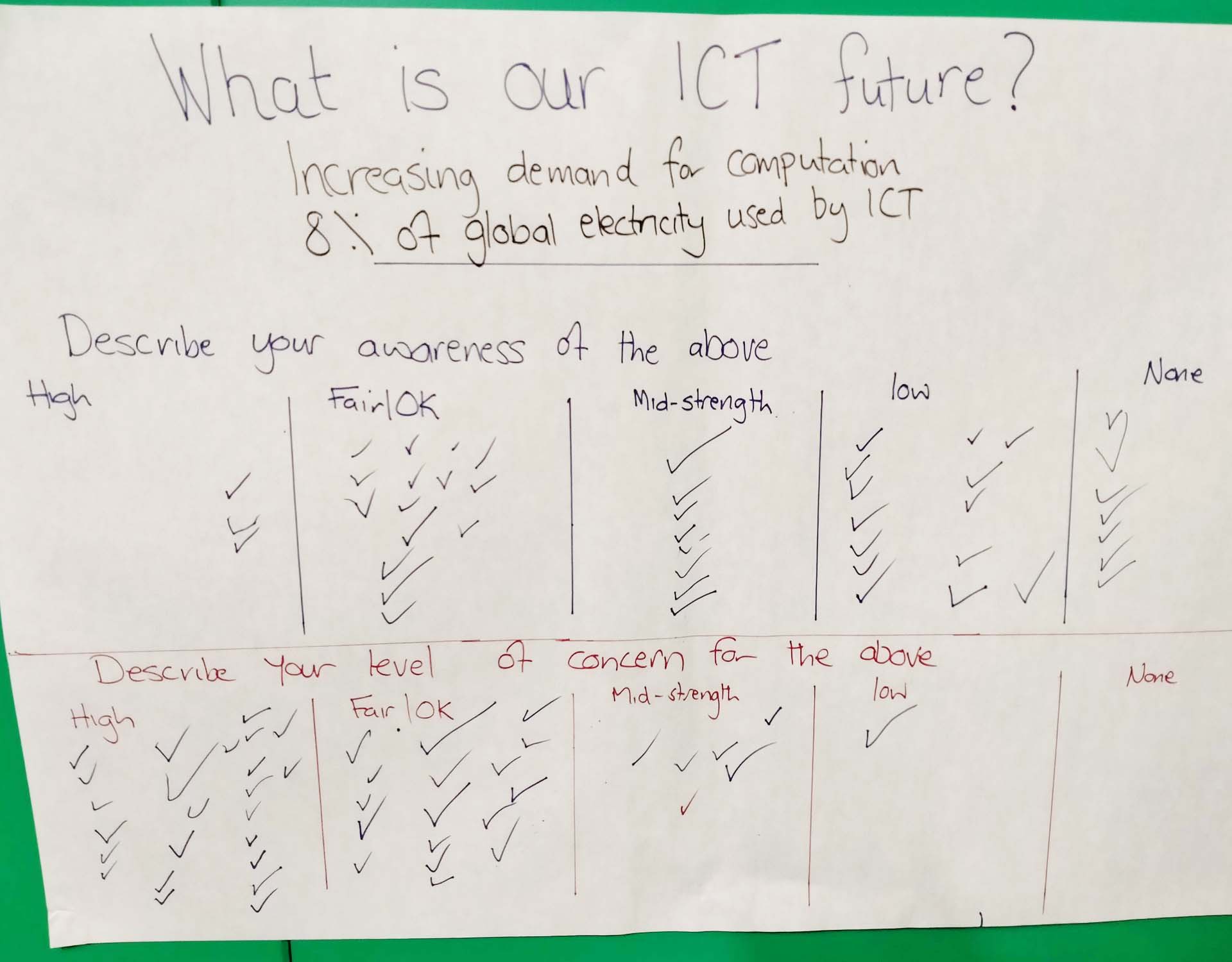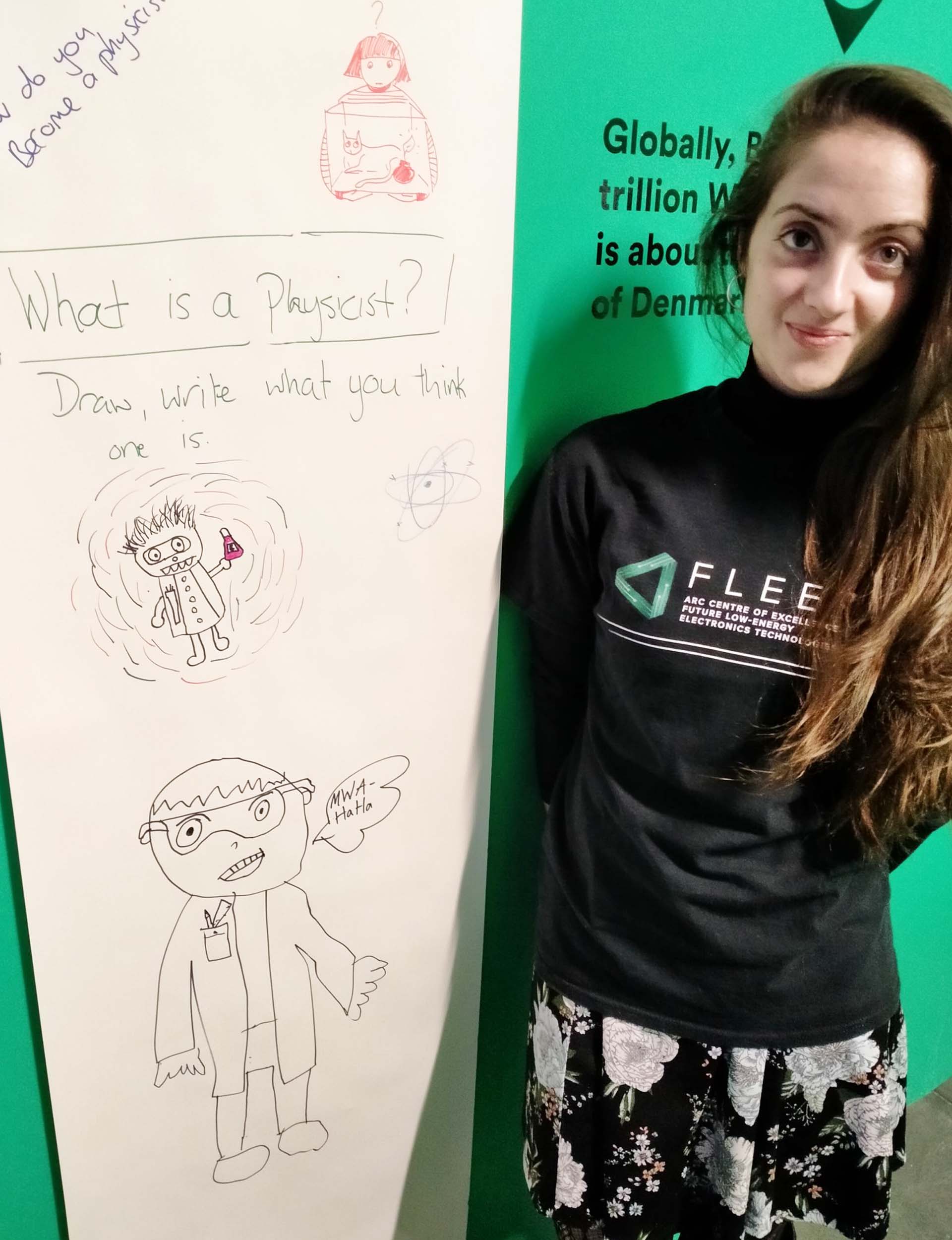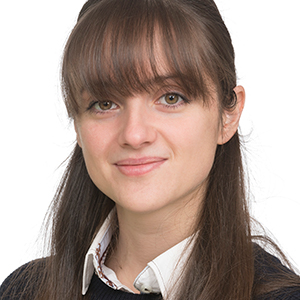Melbourne Knowledge Week (April/May 2021) was an opportunity for FLEET to engage with over 350 members of the public about the exciting future of computing, and the vital role of energy-efficient electronics in that future.
FLEET’s ‘sustainable computing’ booth at the festival hub included hands-on science demonstrations linked to materials used in FLEET research, such as gallium, bismuth and ferrofluids.
The exercise also gave 13 Centre members from FLEET’s three Melbourne universities the opportunity to gain valuable experience in public science outreach, speaking to a diverse audience.

This type of public outreach helps me become a better communicator, both with the public and with people from other scientific disciplines.
Patjaree Aukarasereenont (RMIT) PhD student
Many researchers also find that the value of such outreach experiences extends beyond developing specific skills or achieving KPI outreach hours – it reminds them of their own passion for science:
Seeing other people’s interest in our work helps remind me of why I’m doing this research and keeps my passion in science alive.
FLEET volunteer, Melbourne Knowledge Week


FLEET’s presentations had a positive effect on visitors’ appreciation and awareness of physics.
One of FLEET’s outreach objectives is to get people to think critically about the role and implications of FLEET’s research. FLEET presenters at the Melbourne Knowledge Week booth discussed with public visitors what value they put on computational power. For example, driverless cars, the Internet of Things, or artificial intelligence for disease diagnosis and treatment.
Discussions explored visitors’ perception of the energy demands of computing, and what value they would place on FLEET’s search for low-energy electronics, aimed at allowing computing to continue to grow.
Visiting members of the public became aware for the first time of the increasing demand for computation and the associated energy requirements: “I’d never thought of the computation–electricity demand problem and how closely related the issue is with my technology needs.

“What does a scientist look like?” FLEET’s Dr Iolanda Di Bernardo (Monash) beside schoolkid’s representations
“It is definitely an eye opener. Visitors who worked in computing were particularly interested. For example, a virtual-reality visual artist mentioned he’d never considered the consequences of his own work’s high computational demand, realising with some concern that his environmental footprint was ‘massive’. And a data-centre worker said she’d been prompted to realise that her role in encouraging more users onto ‘the cloud’ had social and environmental implications.
Conversations were in-depth, with most conversations being around 10 minutes long. Visiting public were surveyed before and after the conversations, to gauge their awareness (low) and concern (high) about ICT energy use, and their appreciation of physics after speaking to FLEET.
Such events also help humanise scientists, in particular, exposing schoolkids to working scientists outside the ‘pale, male and stale’ stereotype whose laws they might learn in class.
Research shows that challenging kids’ early gender biases towards professions can influence their future career choices.

Kids can’t be what they can’t see, so we are trying to challenge gender stereotypes in children by demonstrating to them that a scientist can look feminine too.
Dr Iolanda Di Bernardo (Monash) FLEET Research Fellow